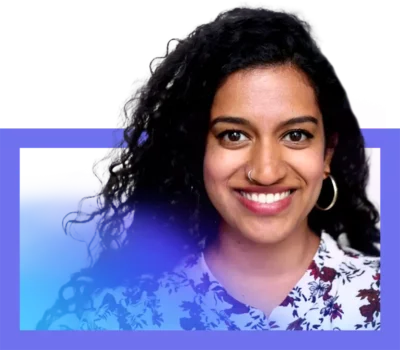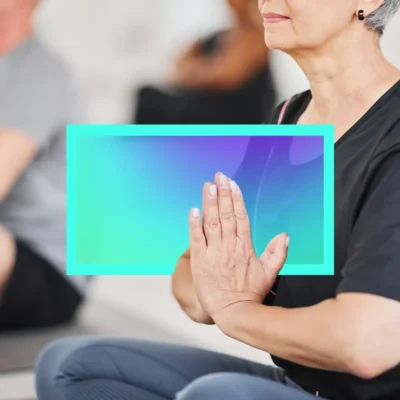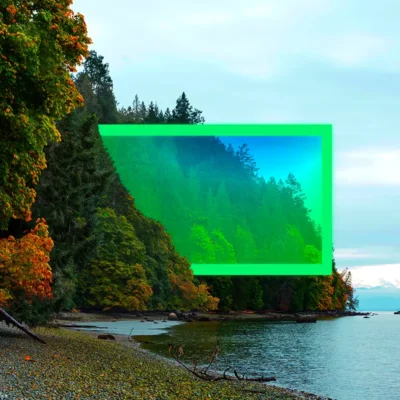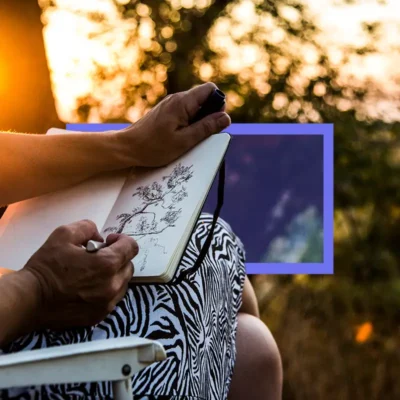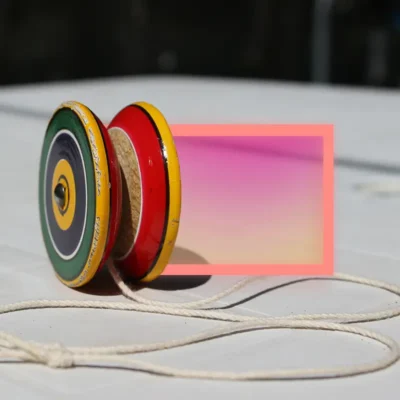Together, we move from fear to hope
Climate activist Varshini Prakash first became aware of the effects of a changing planet when her grandparents’ village in India was flooded in a monsoon. A child then, she felt overwhelmed and powerless. In this week’s episode, Varshini shares how she came to find hope and build courage through the large and small communities in her life.
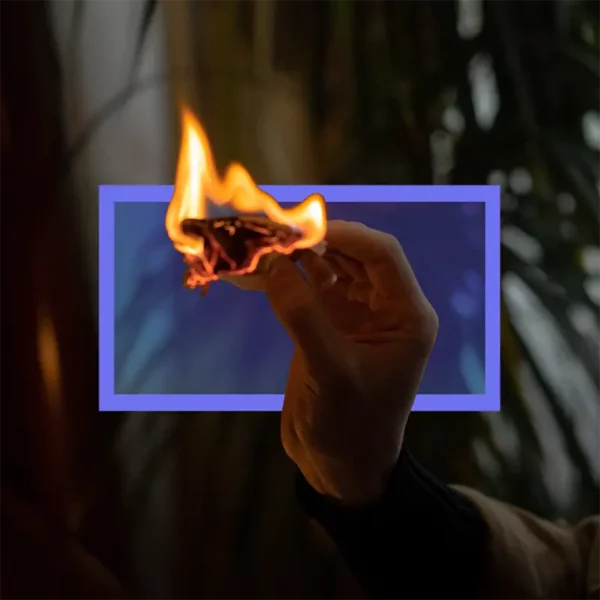
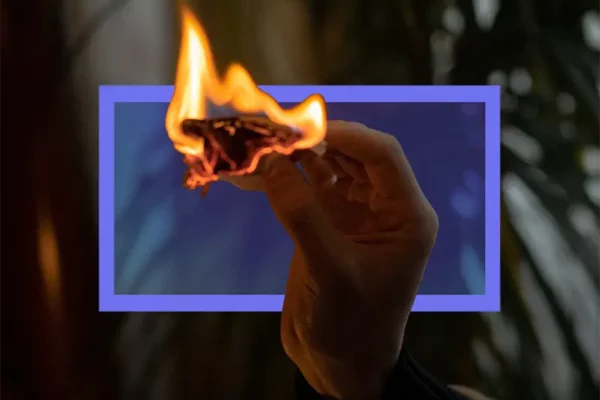
Table of Contents:
Transcript:
Together, we move from fear to hope
VARSHINI PRAKASH: One by one, we take our scraps of paper — carrying the things we want to heal from — and we drop the scraps into the metal bowl on the table. The room is quiet. We’re riveted.
Someone takes out a lighter and sets one of the scraps on fire. The paper edges turn bright orange, and then a deep smoldering red.
One by one, we burn our fears away. We clear the path for a different story.
ROHAN GUNATILLAKE: Climate activist and Sunrise Movement founder Varshini Prakash has a lot of experience building coalitions to take on problems that can feel too big to solve. When things get overwhelming, she relies on the diverse connections she’s formed as a source of common strength. In this week’s episode, Varshini shares how the little communities we create together stay with us, and remind us to hold on to hope.
In this series, we combine immersive first-person stories, breathtaking music, and mindfulness prompts so that we may see our lives reflected back to us in other people’s stories. And that can lead to improvements in our own inner lives.
From WaitWhat, this is Meditative Story. I’m Rohan, and I’ll be your guide.
The body relaxed. The body breathing. Your senses open. Your mind open. Meeting the world.
PRAKASH: My friend Kaela and I step out the side door of her house, onto the patio beneath the large magnolia tree. We run across her backyard, right up to the edge of the woods. It’s early fall. Sunlight filters through the colored leaves and bare branches — hitting the rocks and roots on the ground.
At the tree line, we stop. Kaela reaches out her hand. I take it in mine. Together, we step over the threshold into our magic cabin.
Marching through the trees, we pass by a cleared patch of earth where we hope to plant a garden in the spring. We pause at the excavation site where we’re digging our new pond.
About ten feet in, the woods get thicker. It’s mostly evergreens, oaks, and maples — the trees of the northeast. The kind that grow all over our Boston suburb. I stop and listen for the birds. I smell the air. Then I pick up a few big sticks to repair the cabin walls. I wipe my hands on my shorts, smearing them with dirt. I’m 10 years old and this imaginary world is my happy place.
In reality, our “magic cabin” is just four trees that make a square — with some big sticks piled between them. Our dream is to eventually build real walls. In this thin strip of woods — maybe 25 to 50 feet deep — we can hear cars passing on a main road nearby. All things considered, it’s not that spectacular here.
But it’s a place all of our own. Something about it feels suspended in time. Like a portal to somewhere else. Years later, I’ll think of this place as “sacred.” But right now, I just think it’s really fun.
“We need chairs!” Kaela says.
I snap out of my trance and look around our “cabin.”
“You’re right,” I say. “I’ll lead the expedition! Let’s go get a big rock from my yard!”
We march out of the trees and across the street to my house. An imaginary crew of 15 people marches behind us. I point out various plants and birds along the way, like a tour guide, except that I make up the names. Kaela nods enthusiastically. Neither of us knows much about the world around us yet. That’s okay. There aren’t any consequences here. No limits to what we can do.
At the end of our expedition to my backyard, we find a boulder that’s the perfect size. It’s maybe 30 to 40 pounds. Kaela and I bend our knees and search for a place to grip with our hands. We lift and tip the rock over. It’s really difficult and it’s so heavy. We wipe sweat from our foreheads and repeat the process, rolling it again and again across the yard and into the street. I look at Kaela and say, “We can do this.” And I believe it. Because we’re doing it together.
But by the time we make it to the road, our arms are tired. With our last bit of effort we roll the boulder one more time and then we fall down laughing. “What are we doing? This is hilarious!” We laugh and laugh and eventually decide to leave the boulder where it is, in the middle of the road. Cars have to drive around it.
In a lot of ways, Kaela and I are super different. She’s tall and pale. I’m short with brown skin. She’s quiet and shy. I always have these nuts ideas for adventures. But we’re buds. We created this special place together.
Here, I don’t have to worry about fitting in. Or about being judged because my family’s different from other families in our town. Things in the magic cabin are uncomplicated. All my crazy ideas seem possible. It’s a place where we can be vulnerable and try on different roles. It’s a little community of two, where all our hopes and dreams feel totally real.
Our group of four files silently into the hushed sanctuary of the synagogue. The ceilings are so tall. It feels grand. A stage is set up in the front. That feels weird to me. Our group performs Carnatic music, the traditional music of South India. And we usually perform sitting down on the floor with our legs crossed. This looks more like a concert. I tug at the skirt of my salwar. I’m 15 years old, and feeling pretty nervous.
There are a lot of people here. This is my first time in a while singing to an audience that isn’t also Indian. Recently, there was a terrorist attack at a Jewish temple in India along with 11 other locations. We’re invited to this Jewish temple in Boston as a kind of cultural reconciliation. I feel uneasy.
I step onto the stage and file in next to my friend in the row of singers. Finally, I look up at the sea of faces in the crowd. Do they hate me because of what happened? Do they hate me because they think I’m strange?
It feels scary to share this part of myself that’s so different from mainstream American culture. I feel vulnerable. I’m afraid of being lumped in with the people who committed this horrific act of violence. There’s such a gulf between me and everyone sitting in this audience. I don’t see how singing is going to fix that. It’s hard to feel hopeful about anything right now. There’s so much turmoil in the world. It all feels scary and overwhelming.
My friend bends down to turn on the shruti box, a small box that keeps pitch for vocalists. We all listen for a breath, tuning our voices together. With a signal from my music teacher, we begin. All at once, our voices leave our mouths and find the notes. I sing the melody, cycling through the repetitions of the raga. Immediately, my body relaxes. Feeling my voice mix with others, I’m caught up in the energy.
I look out at the audience, and see soft faces looking up at us. I think to myself, “These people are real. There’s no abstract, scary thing out there. They’re just here. And we’re doing this together.”
GUNATILLAKE: Reflect on a time when you’ve found openness and warmth in a new community. What vulnerability or worries did you have to let go of? Let’s open our mind to the feeling of connection that was made possible.
PRAKASH: When the concert ends, a woman and her friend approach me and my friend. “That was so beautiful,” she says. “I feel grateful that you all came. And your dresses are so lovely.” And right then, all the things I feel vulnerable about fall away. I feel included. Seen.
I realize this is healing for the people in the audience too. Performing this ritual of music helps us process our fear. We’ve created a new little community here today, out of two different cultures. They don’t hate me. I don’t fear them. Together, we lean on each other and retain a little bit of hope.
We only perform at the temple one time. But that’s all it takes. The warmth and acceptance I feel from that little community stays with me.
The fall air in rural Pennsylvania is cold and damp. Looking out the window, I see a winding road running through fields dotted with cows. The sun is setting behind the hills. It’s gorgeous. I’m standing inside a farmhouse I’m renting with 11 other young climate activists from around the country.
I’m 23 and the youngest one here. I’ve only been working in climate organizing for three years but I’m amped on it. I run a local campaign, I participate in a national organization, and I encounter a lot of failure. The activists here with me at the farm are looking to build something different. Something we haven’t even envisioned yet. The problem we’re facing is huge. And we all know we’re running out of time.
I turn from the window and look around the living room. It’s homey and cozy with wide comfortable chairs, dimly lit lamps, and wood paneling on the walls. Sheets of butcher paper are scattered around, filled with brainstorms from today’s meeting. I see a metal bowl perched on the table. My friend is leading tonight’s session. She tears pages out of a notebook and passes the scraps of paper around, along with some pens. And then she tells us: “Write down one thing that’s holding you back from envisioning the future. A part of yourself you want to let go. A trauma you want to heal from.”
Everyone starts writing. It’s quiet. I take a moment to reflect.
I think back to a year ago, when the region where my grandparents live in India floods in a monsoon. Luckily, Patti and Tatta are out of the country at the time. But the first floor of their apartment is submerged. I read stories of fishermen rescuing neighbors in their boats. I see images of people walking down the street in chest-deep brackish water. I know those streets. The streets I play in as a kid visiting my grandparents. Where I buy my favorite dessert, therattipal. They’re unrecognizable. When I visit a year later, I can still smell the stench of sewage that ran in the streets.
Monsoons aren’t uncommon in South India; their frequency and intensity are becoming more erratic every year. Throughout high school and college, I’m aware of the beating drum of man made environmental issues people in India are facing. Water disputes. People trapped in debt cycles. Thousands of farmers in the countryside taking their own lives. The climate crisis feels so far off. It’s hard to connect the dots between events, but this feels close to home. So close to people I deeply love. And it feels like it’s just the beginning.
I feel powerless and scared. Like, I have no agency in shifting my future. Even here, in the middle of trying to build a national movement, I feel like an imposter. That people don’t take me seriously. That maybe I won’t make a difference.
I’ve come to this farmhouse feeling a sense of failure. In college, I lead a campaign to get my university to divest from the fossil fuel industry. But our victory feels hollow. The amount of money we divert is a drop in the bucket. I keep reading UN climate reports, and the predictions are getting worse. People are dying. The whole system needs to change and we are absolutely not powerful enough to do that. We want to build something new, but I’m afraid we’ll fall short. I’m afraid we’ll fail.
I take a minute to write some of this down and when I look up, people have started putting down their pens.
I look around at the faces of my friends. My teammates. I remember the deeply personal stories they’ve shared at retreats just like this. Stories about why they’re coming to this fight.
My friend Sara’s family is ancestrally Croatian. She grows up visiting her grandma in Novigrad. And over the past few years, she watches as unprecedented storms deluge the region her family has lived in for decades and decades.
Victoria’s grandfather is a Mexican farmer. He immigrates to America to find work and support his 11 children. He settles in California where he depends on the stable climate to feed his family, and feed the nation. But now that stability is gone. Erratic fires, droughts, and mudslides contribute to an uncertainty about where our food is going to come from.
Evan is from Hawaii. As a child he swims at a beach with his sister and parents. That beach is now lost to the sea. The changing climate is causing ocean levels to rise. Beaches all over are eroding. People lose their homes. The debris destroys reefs and habitats. Tears stream down Evan’s face as he tells this story.
Looking around I realize: It’s not just me. All of us have something we’re holding on to. Some pain, some sadness, some fear that brought us to this place. But that’s also maybe holding us back.
One by one, we take our scraps of paper — carrying the things we want to heal from — and we drop the scraps into the metal bowl on the table. The room is quiet. We’re riveted.
Someone takes out a lighter and sets one of the scraps on fire. They drop it in with the rest. The paper edges turn bright orange, and then a deep smoldering red. Then they turn black, and finally gray as the paper crumbles into smoking ash.
One by one, we burn our fears away. We clear the path for a different story.
There’s a warmth in the room now. The air smells like charred wood, like a campfire. The cold ashes slide around a bit at the bottom of the metal bowl. The remnants of paper are curled and twisted like corkscrews.
We pick up our pens again. Now it’s time to write our vision for the future. Our hope for what will be. We read those out loud too. We talk about what we love, about the people and places we want to see flourish. Everyone is so passionate. And I realize all our stories of heartbreak and loss stem from a deep love and connection we feel to the world. From that sense of belonging we feel. From our first homes — the little communities we grow up in.
GUNATILLAKE: Let’s take a seat with Varshini and the others in this ritual. What is your hopeful vision for the future? What places and people do you want to see flourish? And what is a deep love or connection you feel to the world? You can take a pause to write these things down, or just spend a moment holding each of these thoughts in your mind as they come. Take your time.
PRAKASH: Often when I tell my story, it starts with the moment I realize something is wrong in the world. But really my story starts in the place where I fall in love with the world for the first time. In the woods behind Kaela’s house. In our magic cabin. I’m realizing that everyone in this farmhouse has their own magic cabin. It’s what we fight for.
All our despair is equaled by an almost manic determination to save what is left. We think, if the powers that be can turn our country so far in a negative direction, why can’t we turn it the other way? In the direction of justice. We lock into a plan.
I feel so lucky to have found this group of people. It’s really difficult to be courageous on your own. Courage takes community. And that’s what we are now. This retreat and the rituals we perform create a lasting bond. They create a community that will grow. That will change. That will spawn other little communities. I’m filled with a fierce hope. I feel called into action, like I can do anything.
The Monday morning sun picks up the pinks in the rug in my apartment. The room is filled with crazy colors. Yellow couches. Blue chairs. I love it. I pace a lot so I’m wearing my sneakers in the house. I do a circuit from the kitchen through the living room to my bedroom — It’s what I do when I have to think, when I’m on calls, when I’m cooling down from an exchange with a senate aide. Today I’m just leaving a long voice memo for my best friends, Sara and Victoria.
I hold the phone a few inches from my chin. “I was so tired I gave myself mandatory bed rest yesterday,” I say. I’m recounting the fallout from a work trip on Friday. Running an organization is exhausting. But then I remember the fun pictures Sarah sent of her trip to New Orleans. “Your outfits are awesome!” After six or seven minutes, I press send. They’ll get back to me in a hour, or a day or two. We live far apart, but I feel like they’re down the street. These voice memos are our weekly ritual.I pick up the half-cold coffee mug from the counter and take a sip. Another big day ahead. Seven years after that farm in Pennsylvania, the organization that grew out of that retreat is in full swing. It’s called Sunrise and I can’t believe the stuff we get done. But that doesn’t mean it’s easy. Last week was brutal. I look out the bright kitchen windows and take a deep breath. I’m still smiling from the image of Sarah in her dress. I feel so much better than I did ten minutes ago. The stress in my body is melting away.
My phone vibrates. Victoria has sent back an emoji. I know she probably hasn’t listened to my memo yet, but I also know she will. She volunteers for a dog shelter, so she might record something while out walking the dogs. I grin, anticipating hearing her voice.
These voicemails are simple, just for fun really. But the act of doing it keeps binding us together. We turn to each other in moments that are really good, and we root for each other, especially when we’re scared and overwhelmed. They believe in me. We remind each other of the current of hope running between us.
I’m a part of a lot of little communities. Friends. Activists. My family. And they’re all connected. Like an ecosystem. Some of them are long-lasting. Others only exist for a weekend. But when we’re vulnerable with each other, take action together, the power of those communities stays with us.
Without those relationships, it can feel impossible to do all of the things we want to get done. Especially when the problems we’re facing are so big. But these days, I have a sense that anytime I’m doing something scary or hard or new, there is someone there holding up their piece. Which means that I can hold up mine.
Anytime I feel doubt or fear, there’s someone in my little community to say, “No, we’ve got this. We can do this.” That’s a hope I can hang on to.
Rohan’s closing meditation
GUNATILLAKE: Thank you Varshini.
Varshani’s story has so much to teach about community, why it matters, how it forms.
It also answered a question I’ve had for a long time: how do people involved in activist work maintain their energy when working against the stream and not burn out? As Varshini has taught us, the answer, in part, is community. The little communities we create together — whether they last for a moment or a lifetime — stay with us and remind us to hold on to hope.
We’re all working to make change in our own way. In different contexts and at different scales. But it’s hard to go against the stream, the stream of convention, the stream of habit, the stream of incumbent power.
So we need support, we need allies, we need friends. We need community.
In the mindfulness tradition there is this lovely practice all about this called spiritual friendship. It means being around other people who can help model the ways of being we aspire to, people who can support us in our journey. It also points to how we ourselves are a support to others — the friendship, the community only exists in relationship.
So to start our short closing meditation together, let’s bring to mind a person — or it might be a group of people — who are that for us. Someone we can be open with, vulnerable with. Someone with whom we can share our hopes and fears.
Whoever is the first person that comes to mind is the best person to go with. Bring them to mind. Invite them to this moment to be with you.
If there is warmth in the body as a result, then enjoy it. If there’s a smile, then enjoy it.
And as easy as it is to recognise the support you receive from this person, now the invitation is to reflect on how you nourish them too. This might be obvious or it might feel like a stretch. It can often feel that our support relationships are one-way but that is rarely true.
So enjoy your breath and as you do, get a sense for how your person receives as much from your support and your being as you do from theirs.
Varshini’s story also has me reflecting on Meditative Story as a community.
There is a, kind of, ritual here. We bring a story into our lives and it becomes the shared object around which we connect. We listen. We react. We practice together. Together but also apart. It’s mysterious but for me, very very real.
So as we close, let’s sense into this community.
Imagine, however you care to, the thousands and thousands and thousands of other Meditative Story listeners of this episode. Different places, different times. Listening to the story in different moments of their lives.
But for all this difference, there is this shared connection. Mysterious but real.
Friends near and far who by holding up their piece, their willingness to inquire into what it is to be human, their ability to orient towards connection and shared wisdom — they help us hold up ours. Help us orient towards that too.
We, the Meditative Story team, make the show so that this community can exist. And the show only exists because the community exists.
Because of this, that.
Because of that, this.
Relationships, interdependence, community.
When we feel into the communities that we are part of, the clearer ones and the fuzzier ones, like Varshini says, we’ve got this. We can do this.
Thank you Varshini again, for your story and your so, so valuable work.
And thank you, we wouldn’t be here if it wasn’t for you.
We’d love to hear your personal reflections from Varshini’s episode. How did you relate to her story? You can find us on all your social media platforms through our handle @MeditativeStory. Or you can email us at: [email protected].
